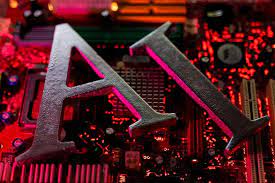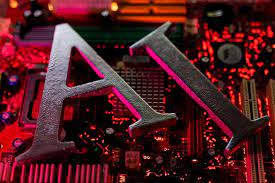
Sam Altman, the CEO of OpenAI, will not be present at next week's CES trade event in Las Vegas. However, as device manufacturers scramble to find consumer applications for the technology, the generative artificial intelligence frenzy his business touched off last year will be on full display.
Dozens of companies have scheduled announcements for the show about how they are incorporating artificial intelligence (AI) into their devices, ranging from safety systems involving guns at schools and devices for the visually impaired to facial recognition software that can assess vitals and cabin-monitoring systems inside autonomous cars.
The Consumer Electronics Show, or CES 2024, takes place from January 9–12.
Despite Altman's actual absence at the expo, OpenAI's influence was felt, similar to Apple and its founder Steve Jobs, whose influence was seen despite his not attending, with several companies vying to display devices that would work with the company's elegant products.
Most people consider Altman to be the embodiment of the AI craze that has engulfed the IT sector in the last 12 months. His brief removal from the ChatGPT maker's board in November garnered media attention. A few days later, the board reinstated him after over 700 workers threatened to resign in protest and join OpenAI backer Microsoft.
According to media sources, OpenAI is collaborating with renowned former Apple designer Jony Ive on a covert AI hardware project, among other things.
According to PitchBook data, funding for generative AI initiatives surged last year, more than fivefold to $23.78 billion through the beginning of December from 2022.
"It's the year of AI in everything," said Maribel Lopez, tech analyst at Lopez Research. "If you don't have AI in your product, don't show up, it's not worth talking about."
Bosch of Germany is anticipated to present an almost undetectable gun-detection device that combines auditory and visual artificial intelligence for proactive school safety. Japan's NEC will present artificial intelligence (AI) software that allows mobile devices to assess pupil conditions and facial patterns to evaluate a person's vital signs and mental state.
Numerous businesses are anticipated to showcase how artificial intelligence (AI) is improving in-car virtual assistants and cabin monitoring, thereby making driving safer and more seamless.
After years of investing in AI-powered autonomous technology, manufacturers are now concentrating on developing technology that enables a "hyper personalised" experience during the car-buying and driving processes, according to Boston Consulting Group managing director Akash Arora.
"They're trying to figure out 'if I could get to this level of customer experience it can really differentiate me in the market,'" he said of companies in the auto industry.
For instance, Israel-based Cipia is scheduled to present a system that tracks indicators of driver distraction and tiredness, and Cerence, a company that creates AI-powered virtual assistants, is scheduled to reveal a collaboration with Volkswagen. Amazon.com promised to reveal its generative AI collaboration with BMW during the event, but it withheld specifics until then.
According to Wendy Bauer, vice president of automotive and manufacturing at Amazon Web Services—a company that counts Toyota and BMW among its clients—many automakers are also implementing AI at different phases of production in an effort to cut costs. According to her, AI can save automakers money by accelerating the creation of new models and guaranteeing improved quality control throughout production.
Manufacturers of PCs and smartphones will also probably demonstrate how AI is used in their devices, which chipmakers like AMD and Intel are hoping will open up new revenue streams. Microsoft announced on Thursday that the event will include PCs that have a new AI button on the Windows keyboard.
However, since these advances do fewer visible jobs than OpenAI's ChatGPT bot, it is unclear whether users will pay extra for AI capabilities on their PCs.
"Consumers love ChatGPT, but the consumer benefit of having it on a device isn't clear," said Jay Goldberg, chief executive of D2D Advisory. "That's why everyone is going to talk about it - because everyone is scrambling for the consumer utility."
(Source:www.dnext.in)
Dozens of companies have scheduled announcements for the show about how they are incorporating artificial intelligence (AI) into their devices, ranging from safety systems involving guns at schools and devices for the visually impaired to facial recognition software that can assess vitals and cabin-monitoring systems inside autonomous cars.
The Consumer Electronics Show, or CES 2024, takes place from January 9–12.
Despite Altman's actual absence at the expo, OpenAI's influence was felt, similar to Apple and its founder Steve Jobs, whose influence was seen despite his not attending, with several companies vying to display devices that would work with the company's elegant products.
Most people consider Altman to be the embodiment of the AI craze that has engulfed the IT sector in the last 12 months. His brief removal from the ChatGPT maker's board in November garnered media attention. A few days later, the board reinstated him after over 700 workers threatened to resign in protest and join OpenAI backer Microsoft.
According to media sources, OpenAI is collaborating with renowned former Apple designer Jony Ive on a covert AI hardware project, among other things.
According to PitchBook data, funding for generative AI initiatives surged last year, more than fivefold to $23.78 billion through the beginning of December from 2022.
"It's the year of AI in everything," said Maribel Lopez, tech analyst at Lopez Research. "If you don't have AI in your product, don't show up, it's not worth talking about."
Bosch of Germany is anticipated to present an almost undetectable gun-detection device that combines auditory and visual artificial intelligence for proactive school safety. Japan's NEC will present artificial intelligence (AI) software that allows mobile devices to assess pupil conditions and facial patterns to evaluate a person's vital signs and mental state.
Numerous businesses are anticipated to showcase how artificial intelligence (AI) is improving in-car virtual assistants and cabin monitoring, thereby making driving safer and more seamless.
After years of investing in AI-powered autonomous technology, manufacturers are now concentrating on developing technology that enables a "hyper personalised" experience during the car-buying and driving processes, according to Boston Consulting Group managing director Akash Arora.
"They're trying to figure out 'if I could get to this level of customer experience it can really differentiate me in the market,'" he said of companies in the auto industry.
For instance, Israel-based Cipia is scheduled to present a system that tracks indicators of driver distraction and tiredness, and Cerence, a company that creates AI-powered virtual assistants, is scheduled to reveal a collaboration with Volkswagen. Amazon.com promised to reveal its generative AI collaboration with BMW during the event, but it withheld specifics until then.
According to Wendy Bauer, vice president of automotive and manufacturing at Amazon Web Services—a company that counts Toyota and BMW among its clients—many automakers are also implementing AI at different phases of production in an effort to cut costs. According to her, AI can save automakers money by accelerating the creation of new models and guaranteeing improved quality control throughout production.
Manufacturers of PCs and smartphones will also probably demonstrate how AI is used in their devices, which chipmakers like AMD and Intel are hoping will open up new revenue streams. Microsoft announced on Thursday that the event will include PCs that have a new AI button on the Windows keyboard.
However, since these advances do fewer visible jobs than OpenAI's ChatGPT bot, it is unclear whether users will pay extra for AI capabilities on their PCs.
"Consumers love ChatGPT, but the consumer benefit of having it on a device isn't clear," said Jay Goldberg, chief executive of D2D Advisory. "That's why everyone is going to talk about it - because everyone is scrambling for the consumer utility."
(Source:www.dnext.in)





